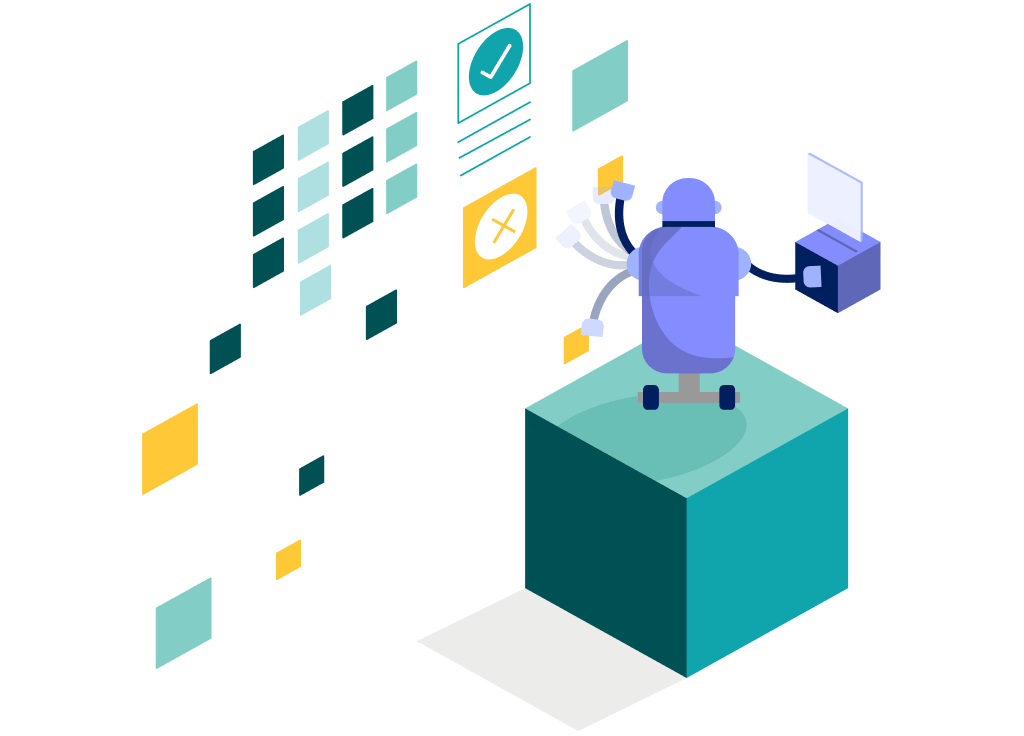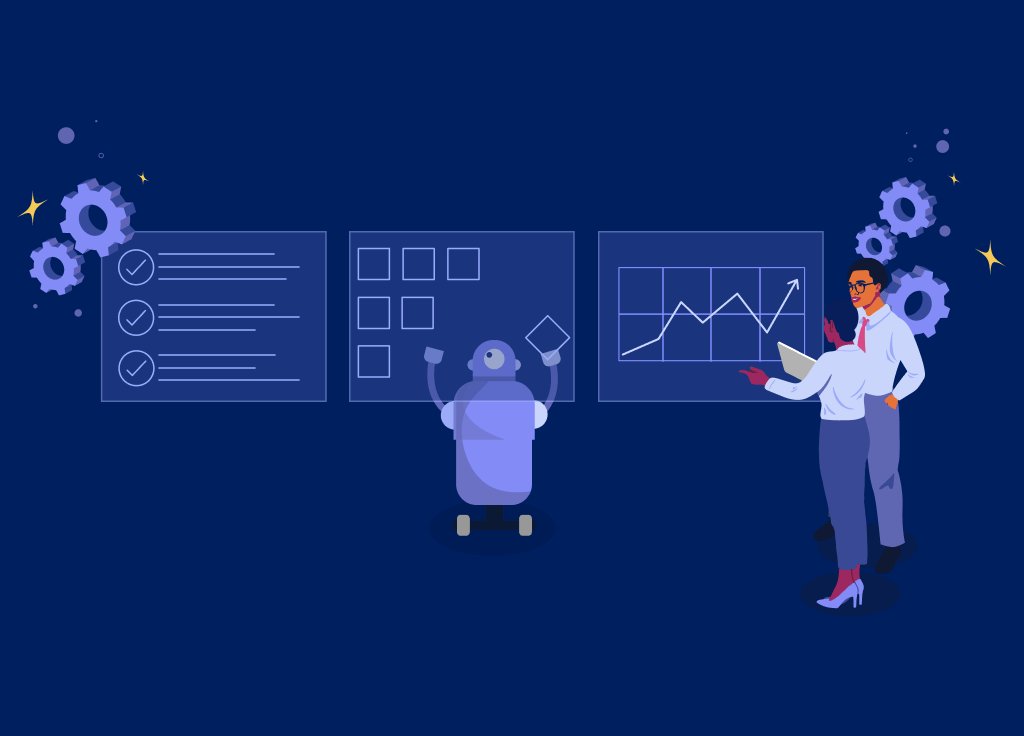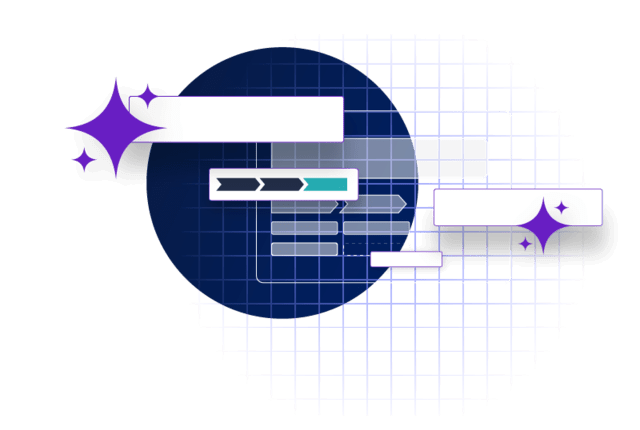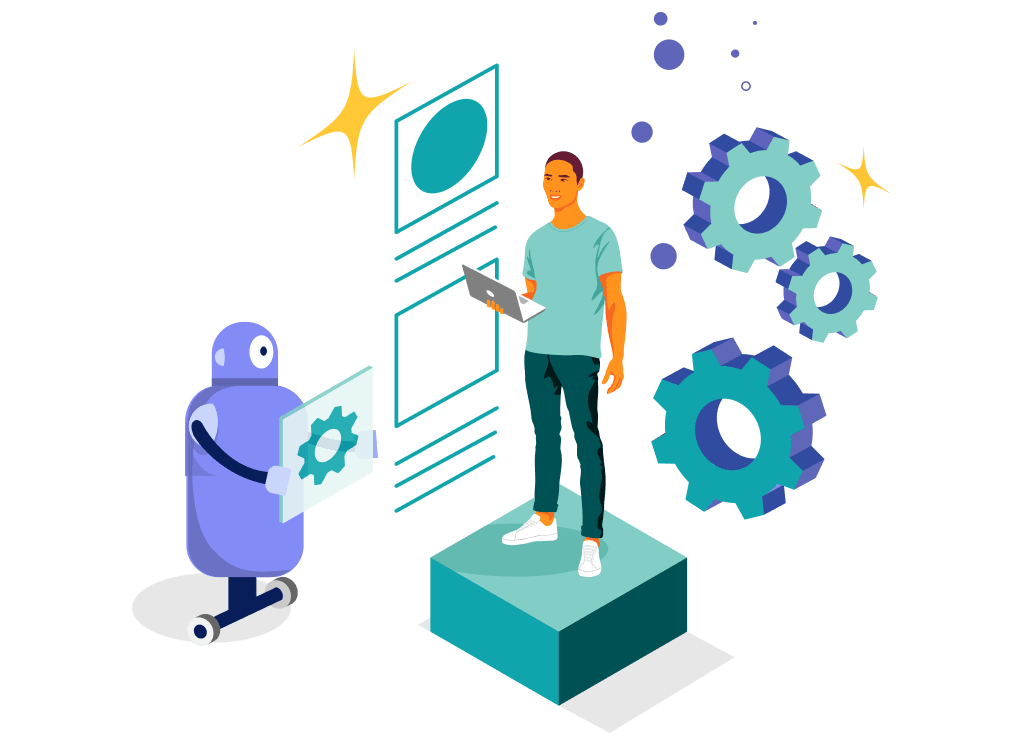Agentic AI

What is agentic AI?
Agentic AI, or autonomous AI, is a type of artificial intelligence that runs independently to design, execute, and optimize workflows – allowing enterprises to more effectively make decisions and get work done. AI agents can make decisions, plan, and adapt to achieve predefined goals - with little human intervention or completely autonomously.
What’s the difference between agentic AI and traditional AI?
Agentic AI
- Operates autonomously, making decisions and pursuing goals, asking for human guidance when needed
- Analyzes situations and finds the best path for moving forward
- Designs, executes, and optimizes workflows to achieve specific objectives
- Adapts to changes and continuously self-improves
Traditional AI
- Provides valuable insights based on data
- Is a key ingredient in more sophistic Agentic AI systems
- Automates or assists with specific, simple tasks
- Often requires manual retraining to adapt to changes in its environment

Why is agentic AI important?
Companies struggle with the complexity and cost of operations. Agentic AI uses intelligence to take action, streamlining operations by making decisions and getting work done automatically – and bringing organizations closer to the model of the autonomous enterprise.
Benefits of agentic AI
- Increased efficiency
By automating workflows and making real-time decisions, AI agents enable straight-through processing – transforming your enterprise into an operations powerhouse. - Enhanced self-service
When engaging with a chatbot, agentic AI understands the customer’s intent and guides them to resolve their own service cases or workflows without escalating to a live agent. - Maximized employee performance
By understanding complex situations, AI agents can guide employees with next steps for advancing their work assignments – based on your company’s policies and best practices. - Better and faster workflow design
Agentic AI – like Pega Blueprint™ – can suggest workflow designs based on industry best practices, both accelerating speed to market and acting as a creative partner to developers. - Hyper-personalize engagement
By analyzing vast amounts of data, AI agents can understand the needs of customers and determine the best course of action in real time, for highly personalized experiences.
How does agentic AI work?
Define your objectives, and Agentic AI takes action – if a workflow exists to satisfy the intent, the agent can execute it. Sometimes, agents may design their own workflows on the fly – but always checking in with humans for support. If situations change along the way, AI agents can adapt their strategy for optimal results. Agentic AI is always looking ahead: anticipating needs, predicting outcomes, and proactively responding to opportunities.


The autonomous enterprise is much more than technology – it’s about operationalizing business agility.
Agentic AI capabilities
Workflow design
Use AI agents inject best practices and design new workflows quickly.
AI-powered decisioning
Automate decisions based on context-rich data to determine the next best action or advance work through straight-through processing.
Workflow execution
AI agents can find the right workflows needed to resolve a user request and execute them automatically.
Workflow optimization
Use AI agents to optimize and execute complex, multi-step workflows.
Adaptability
Build business agility. Agentic AI adjusts to change and predicts future scenarios to ensure the best outcomes.

What are some risks associated with agentic AI?
Based on large action models (LAMs), agentic AI’s complexity presents some risks to enterprises. AI agents, who are capable of acting autonomously, confront businesses with additional risk.
- Inaccuracy and ethical failures
AI agents may act erroneously or unethically and can carry out unintended actions that harm your business. - Opacity and loss of control
The complexity of agentic AI can make it difficult to understand and manage – and its autonomy can make it difficult to control. - Security and compliance
AI systems can suffer from security threats and data breaches. AI agents may produce outcomes that violate regulatory compliance or create liability issues.
How to mitigate the risks
- Ensure transparency and human oversight
AI’s reasoning and decisioning processes must be transparent. Conduct regular audits and exercise human oversight in critical decisions to reduce potential risk. - Bake in Orchestration
Ensure that agents follow existing best practices and rules by including Business Orchestration and Automation Technology (BOAT) in your architecture. - Develop strong guardrails and security protocols
Create guardrails to keep AI agents in line with your business needs. Adopt or develop security technologies that control risks.

What impact can agentic AI have on the enterprise?
Holding groundbreaking power, AI agents can unlock transformative opportunities that revolutionize business. Agentic AI’s capacity for intelligent, independent action puts companies in hyperdrive on their path toward the autonomous enterprise – a model which optimizes business productivity at unimaginable scale.

Explore Pega’s original research to learn what 500+ global decision makers think about AI in their enterprises.
What are some use cases for agentic AI?
Agentic AI works across industries and use cases, analyzing data, making decisions, autonomously managing complex workflows, and optimizing processes.
Customer Service
In self-service situations, AI agents can understand customer intent and determine the right workflow for guiding customers to resolve their own inquiries. Agentic AI can also assist customer service reps with their work by suggesting actions and automating tasks and processes.
Financial Services
Capable of analyzing vast amounts of data, AI agents excel at fraud detection. Once detected, agentic AI can launch an automated workflow that carries out the steps for resolving the fraud issue.
Healthcare
Agentic AI holds substantial value in healthcare settings, where it can analyze patient health data for proactive care, schedule appointments, and guide patients and providers through healthcare journeys.
What’s the difference between agentic AI and generative AI?
Agentic AI
- Focuses on autonomy and decision-making
- Acts as an intelligent agent, making real-time decisions, adapting dynamically, and integrating with systems or workflows
- Can integrate generative AI to enhance capabilities
Generative AI
- Focuses on creating new content such as text or images
- Produces outputs by learning patterns from data and synthesizing creative or predictive results
Unlocking efficiency with agentic AI workflows
Agentic AI workflows transform business operations by enabling systems to act autonomously, make real-time decisions, and adapt to changing environments. They streamline processes, reduce manual effort, and enhance efficiency in industries like customer service, supply chain management, and healthcare, leading to smarter automation, personalized experiences, and faster outcomes.
Pega Blueprint serves as a foundation for designing, deploying, and refining agentic AI workflows, ensuring these workflows are both effective and aligned with strategic objectives. Learn more about it here.


The future of agentic AI
Agentic AI holds tremendous potential for transforming the enterprise. Because agentic AI operates autonomously, companies will need to adopt a framework capable of supporting autonomous workflows, seamlessly supplying data, and continuously optimizing processes. This new technology will push enterprises to undergo a broader transformation in order to harness agentic AI’s full power.
